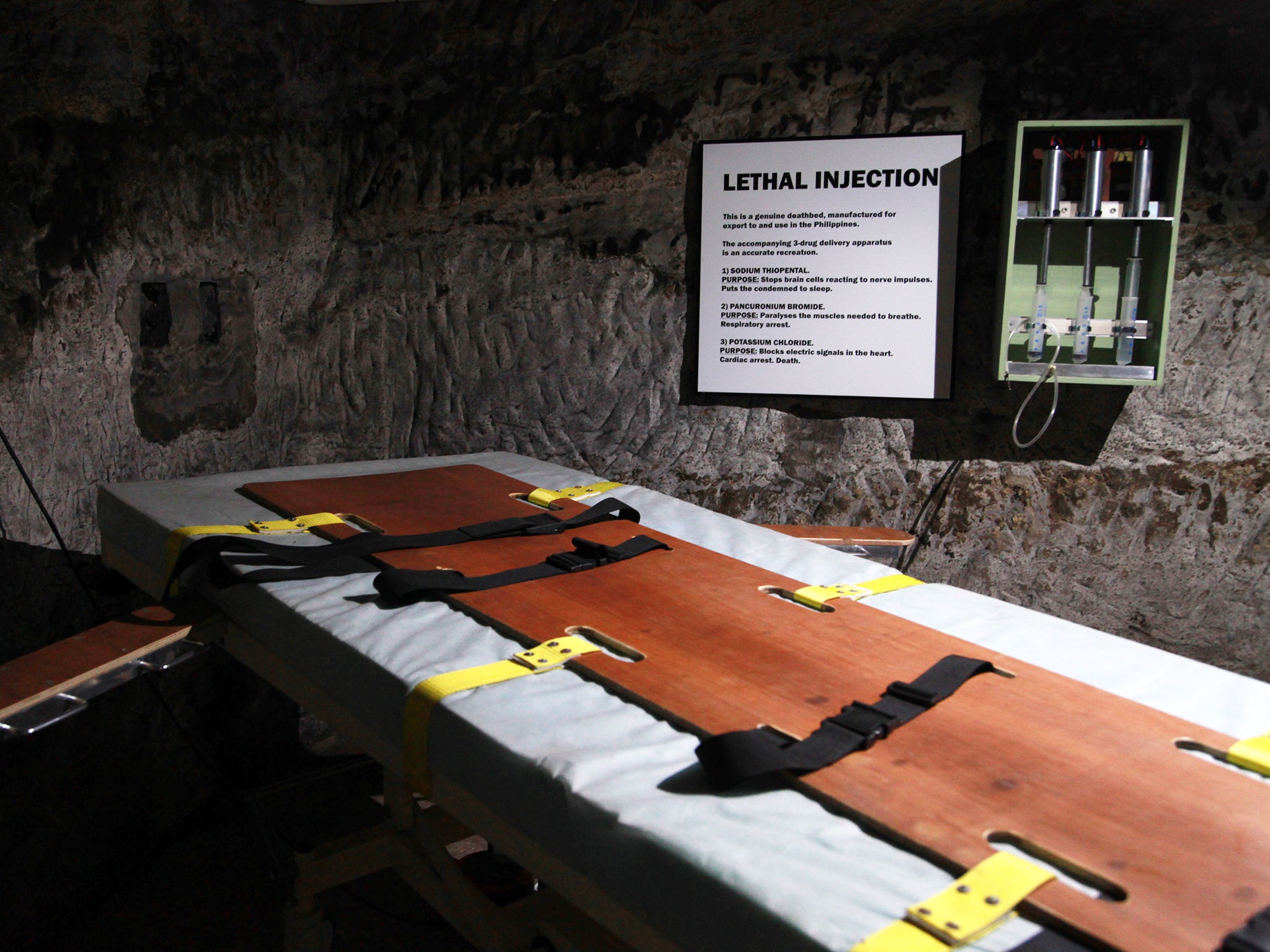Ohio delays executions until 2017 because of lethal injection drugs shortage
Ohio has run out of supplies of its previous drugs and has unsuccessfully sought new amounts

Your support helps us to tell the story
From reproductive rights to climate change to Big Tech, The Independent is on the ground when the story is developing. Whether it's investigating the financials of Elon Musk's pro-Trump PAC or producing our latest documentary, 'The A Word', which shines a light on the American women fighting for reproductive rights, we know how important it is to parse out the facts from the messaging.
At such a critical moment in US history, we need reporters on the ground. Your donation allows us to keep sending journalists to speak to both sides of the story.
The Independent is trusted by Americans across the entire political spectrum. And unlike many other quality news outlets, we choose not to lock Americans out of our reporting and analysis with paywalls. We believe quality journalism should be available to everyone, paid for by those who can afford it.
Your support makes all the difference.Ohio has delayed executions until 2017 because of problems finding supplies of lethal injection drugs.
The announcement on Monday means Ohio will go at least two years without putting anyone to death and marks another setback in efforts to carry out capital punishment in the state.
The Department of Rehabilitation and Correction says the dates of 12 inmates have been pushed into the future through warrants of reprieve by Governor John Kasich.
The developments mean Ohio will not execute anyone until January 2017. More than two dozen executions are scheduled nearly four years in the future, to August 2019.
Ohio has run out of supplies of its previous drugs and has unsuccessfully sought new amounts, including so-far failed attempts to import chemicals from overseas.
Last week a state Senate Committee considered legislation where convicted murderers who had a severe mental illness when they committed their crime would face a maximum punishment of life without parole instead of the death penalty.
The legislation would apply to defendants who don't meet legal standards for insanity or mental incompetency, but nonetheless had diminished capacity to understand their crime because of a condition like schizophrenia, schizoaffective disorder, bipolar disorder, delusional disorder or major depression. The bill would apply to the 141 inmates currently on Ohio's death row, allowing the possibility of re-sentencing.
A spokesman for Ohio Attorney General Mike DeWine said last week that the office has not taken a position on the legislation.
Join our commenting forum
Join thought-provoking conversations, follow other Independent readers and see their replies
Comments